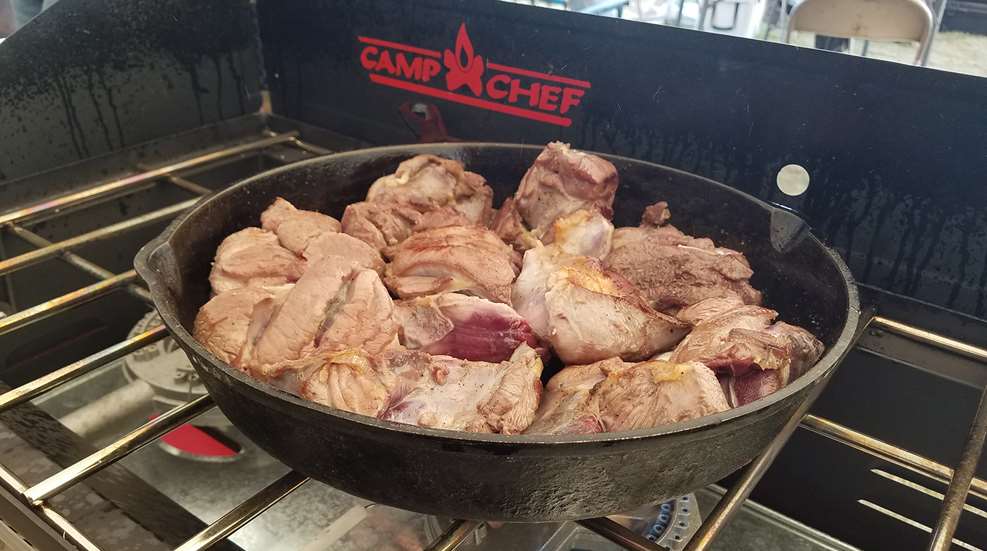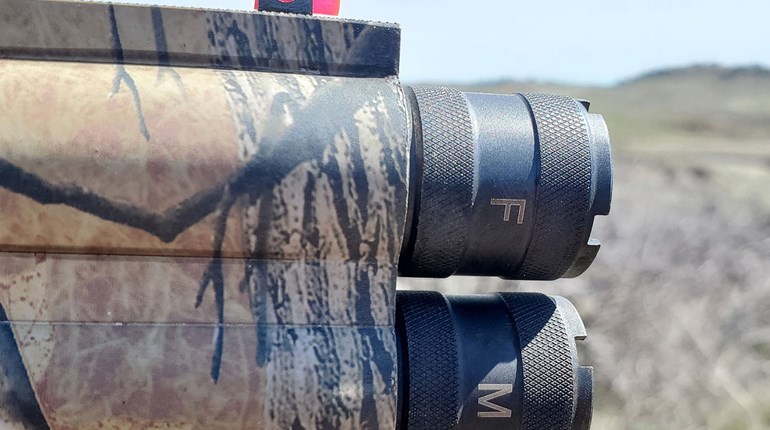
I’ve eaten a lot of game meat in my life, and although I don’t pretend to be much of a fancy chef—I’m more of a down-home cook—most of it has been delicious. However, I have had some run-ins with ducks, antelope, deer and other game that has been unappetizing or downright disgusting, and in nearly every case, I could pinpoint the specific reason why. If your game meat tastes terrible, it’s probably for one of these reasons.
1. Your Expectations Are Faulty
Deer isn’t beef and wild turkeys aren’t Butterballs. If you expect your venison to taste like a well-marbled corn-fed ribeye, you’re in for a surprise. It’s just not going to happen. Each game meat has its own flavor that you should learn to embrace and work with, not against, and don’t expect it to taste like something it’s not or like something you bought at the supermarket.
2. Your Shot Went Awry
If you make a poor shot on a big-game animal, all the stress and adrenaline and lactic acid buildup it experiences on its long run before it expires will contribute to a “gamey” flavor in the meat. If it is gut-shot, that’s worse, and if it sits overnight before you can follow the blood trail the next day, that compounds the problem. Because that means…
3. You Didn’t Cool It Quickly Enough 
The second an animal dies, the time clock starts ticking and the meat begins to decay as it marinates in its own guts and bacteria. Heat combined with moisture is the enemy, so you must get the carcass cooled off as quickly as possible to ensure the best-tasting meat. The way to do this is to gut the animal as quickly as you’re able, and the bigger the animal, the more important this is. Getting the skin off a big-game animal quickly will help, too, so avoid the temptation to throw your gutted deer in the back of your truck and ride around all day while you continue to hunt, show the buck off to your buddies or whatever. Get it skinned and hung up so the meat can cool.
If you have to stuff it in a cooler, ice is a good idea, but leave the plug open so water can drain out as the ice melts. You don’t want the meat sitting in dirty, bloody water.
Some hunters like to age their deer on a hook or hang ducks in the fridge for several days, sometimes even with the guts in them. I’ve never done this because I lack the proper setup and I don’t like not being able to control the variables. I skin and butcher my game as soon as I can get it back to camp and get the meat into the fridge or freezer. If you’re going to hang game to age, do your research and make sure you can keep it in the right temperature zone.
4. You Bungled the Field Dressing
It goes without saying that urine, bile and half-digested food do not make good marinades. If you puncture the stomach or bladder and spill their contents all over the inside of the deer while you’re field-dressing, you increase the yuck factor of the meat.
Avoid any scent glands on the animal, because if you touch them with your fingers or your knife, you can transfer that musky flavor to the meat, and there’s no getting rid of it. On a white-tailed deer, the main glands you need to worry about are located on the legs and feet, and be especially careful around the tarsal glands on the inside of the back “knees.”
Also take care to avoid transferring hair from the hide to the meat as much as you’re able. Basically, the best field-dressing avoids all types of contamination.
5. Your Butchering and Storage Are Sloppy
First, don’t use your dirty field-dressing knife to butcher the animal—clean it or use a different knife altogether. Second, trim your meat aggressively. Deer fat tastes terrible and silverskin is tough and unappetizing, so remove them before you package up the meat. Duck fat and bear fat can be delicious depending on the animal, so don’t waste those, but do be careful about what you keep and what you discard.
Also be mindful of how you store your game meat. Vacuum sealers are great tools, but the old plastic-wrap-and-butcher-paper routine works well, too. You want to avoid any air being able to touch the meat once it’s packaged and put in the freezer, because air leads to freezer-burn. And manage your freezer well so meat doesn’t get lost in the bottom for years on end, slowly degrading.

6. Worse, You Let a Processor Ruin It
If you don’t butcher game yourself, choose your processor carefully (assuming you have options). You want to be sure you get your own animal back—some processors mix up many customers’ deer together in the grinder and everyone gets a little bit of everyone else’s venison. Don’t let that happen to you, or all that effort you put into properly cooling and field-dressing will go to waste and you’ll be at the mercy of some other hunter who let his gut-shot buck rot in the back of his truck all day.
This is not to disparage processors—some are great. Just know what you’re getting, and don’t be afraid to make specific requests about how you want your cuts handled and any mix-ins you like added to your ground meat.
7. The Animal Just Isn’t as Good
The fact is that some animals taste better than others. A bear that’s been eating berries will taste better than a bear that’s been eating fish. A corn-fed mallard will taste better than a mussel-eating sea duck. A 50-lb. hog will taste better than a 400-lb. boar. And all else being equal, a fat young doe will taste better than a 4½-year-old monster buck that’s been run ragged by the activity of the rut.
It’s not always possible to tell what an animal’s been eating or how old is it, but if you can, when you’re hunting with meat in mind, pick a younger animal. And understand that sometimes a specific animal just won’t taste as good as the one you shot last year.
8. You Overcooked It
Venison and waterfowl are best served medium-rare, and this is a hill I’m willing to die on. If you like your steak well-done, I can’t stop you, but cooking a duck breast or an elk steak until it’s gray will amplify any gamey flavor and cook out everything that makes a duck taste like a duck—not to mention make it chewy and tough.
Wild hogs, rabbits, bear and some other types of game should be cooked longer because they can transmit diseases if undercooked. I’m a big fan of using a meat thermometer so I know when meat is safe but not overdone.
Though you can substitute wild game in many of your favorite recipes that use other types of meat, cooking venison and wild birds is not the same as cooking beef and chicken. Invest in a few good wild game cookbooks (I like those by Hank Shaw) that can teach you how to handle each cut of meat from each animal you hunt. With proper handling and proper cooking, nearly any wild game can be enjoyed for its own distinct and unique flavor.














































